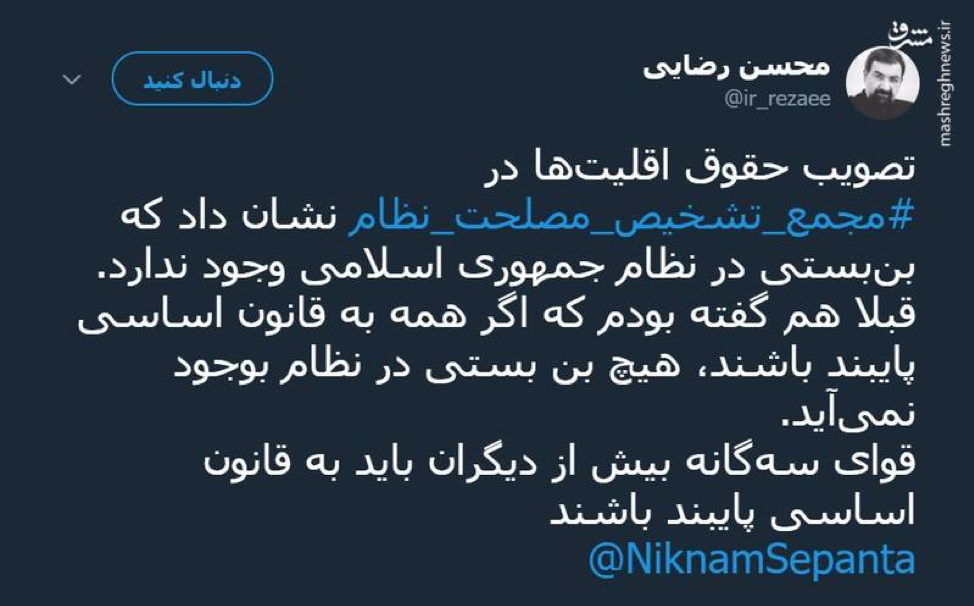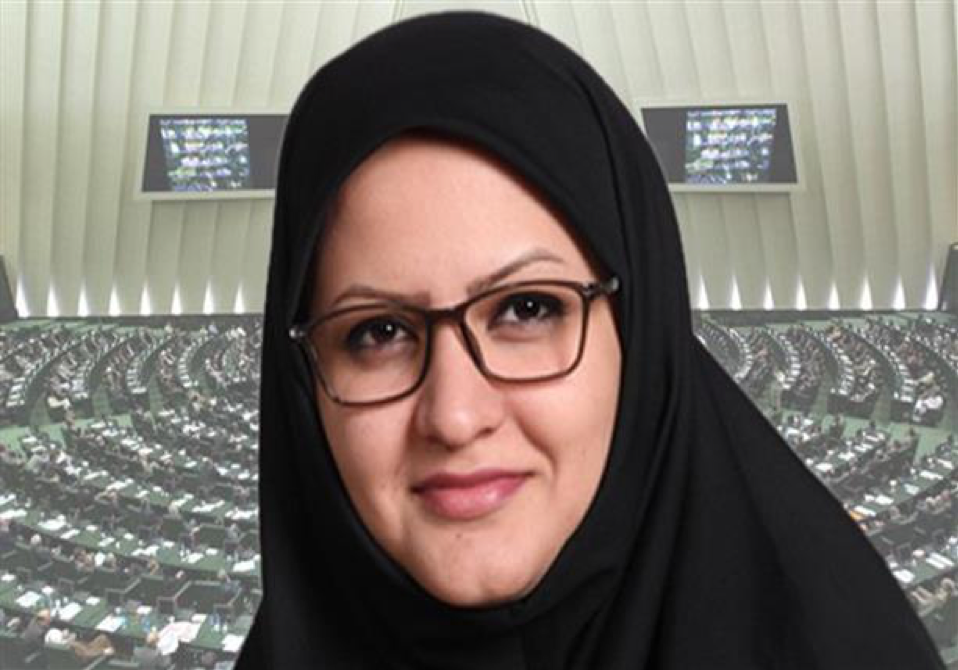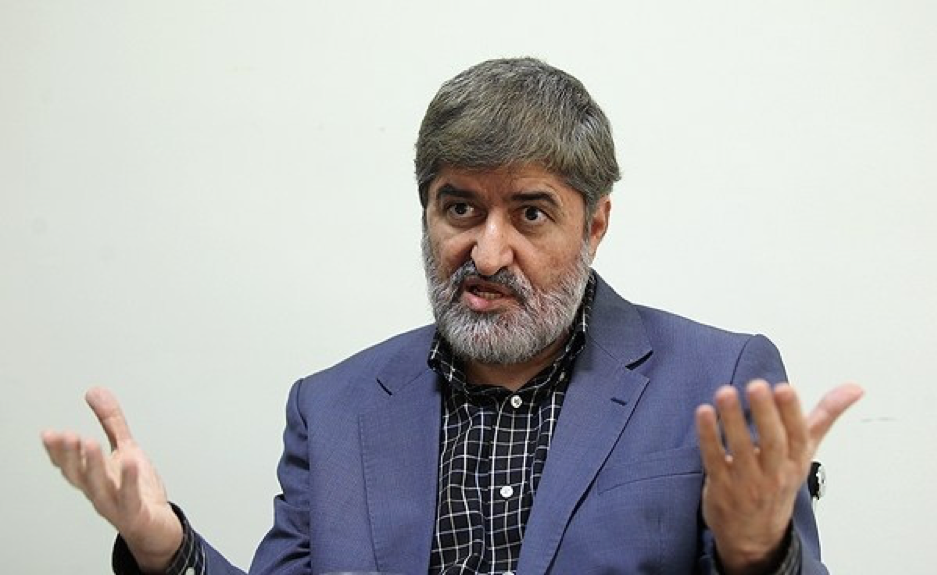
Sabaneta Niknam, a city council member from the city of Yazd, returned to office after more than nine months. He was elected to a four-year term to the city council and was re-elected in 2017. However, he was suspended after a hardliner candidate, who lost the last election, contested the validity of his membership. The losing candidate filed a complaint against him in the administrative court, claiming that he is not Muslim, so he is not eligible to be a representative for Muslims in the city council.
He returned to office after the Expediency Discernment Council (EDC) amended a law allowing religious minorities to run in city council elections.
Article 19 of Iran’s Constitution clearly states, “The people of Iran enjoy equal rights, regardless of the tribe or ethnic group to which they belong. Color, race, language, and other such considerations shall not be grounds for special privileges.” This article confirms what is in Article 20, “Members of the nation, whether man or woman, are equally protected by the law.” However, the Guardian Council violated the Iranian constitution, claiming that the members of city councils –of Muslim majority cities- shall be Muslims.
The Guardian Council’s reluctance to Niknam’s status erupted a huge dispute with the parliament. The parliament resorted to filing the case in the Expediency Discernment Council, which was originally set up to resolve conflicts between the parliament and the Guardian Council and to offer advice in general policies to the Supreme Leader and to Iran’s head of state. The historic decision the Expediency Discernment Council made restored Niknam’s seat in the Yazd city council, turning a blind eye to the Guardian Council’s position in this case.
Niknam posted a tweet asking the Iranian President Hassan Rouhani to join the session of the Expediency Discernment Council and to defend the rights of religious minorities and increase his supportive votes in the city council but he never turned up.
Reaction
The decision triggered a reaction in Iran, particularly on social media and in the political medium. Some newspapers said the decision was ‘historic’ while others published in bold headlines, “Minorities take hold of majority votes,” “Finally Niknam’s case closure,” and “All for one person.”
• Some hope that this case would open the door for further reforms in all walks of life in Iran.
• Others believe that the rage and pressure the people placed on the state snowballed into calls for regime change and this made the Expediency Discernment Council give in, and that transpired had nothing to do with the position taken by the parliament.
• Though the Expediency Discernment Council decision is a historic victory for minorities in Iran, some undermined it claiming that it does not mean the regime is keen to start comprehensive reforms.
• The Secretary of the Expediency Discernment Council, Mohsen Rezaee, tweeted, “the ratification of minority rights protection confirms that the Iranian regime has reached a dead end and that the three branches of government shall abide by the constitution.”

Consequences
The decision of the Expediency Discernment Council, paved the way for discussions on pending issues, most importantly, the case of the parliamentary member of Isfahan, Minoo Khaleghi, who was suspended in April 2016 though she received 193399 votes out of 671471 votes.

Her case provoked a huge debate in Iran. The reason for her suspension remained vague for a while. The circumstances of the case revealed that the Guardian Council nullified Khaleghi’s votes over-sharing photos of herself with her family without wearing a headscarf. Some reported that her competitors submitted photos to the Expediency Discernment Council showing her shaking the hand of a man in China without covering her head. She claimed all the photos were fabricated.
Ali Motaheri, the Second Deputy of Iran’s parliament, asked the Expediency Discernment Council, to discuss the regulation ratified and issued by parliament after Khaleghi’s suspension, which states, “The Guardian Council does not have the right to disqualify or suspend any elected parliamentary member.”

Motaheri, the most ardent defender of Khaleghi, had warned about her suspension in 2016. He believes adopting such a resolution would result in a dangerous precedent, jeopardizing the Iranian regime.
This regulation incited debate between the parliament and the Guardian Council. According to the Iranian Constitution, no regulations or resolutions issued by the parliament shall be in force unless ratified by the Guardian Council.
About the parliaments right bestowed in the constitution, the parliament refers to the Expediency Discernment Council regarding disagreements with the Guardian Council. The parliament submitted the draft regulation to the Expediency Discernment Council for adjudication. Apparently, the Expediency Discernment Council supports the Guardian Council’s decision; it has not yet pronounced its position on the question of Khaleghi’s two-year case. But directly resolved Niknam’s case, which had been pending for nine months.
The Expediency Discernment Council’s duplicity in the two cases unveils the reason why Niknam’s case was smoothly resolved, unlike Khaleghi’s case. Niknam’s case proves to national and international human rights organizations that the regime is supportive of minority rights. Whereas, Khaleghi’s case would be fruitless for this purpose and does not help in removing any other external pressure on the regime.
